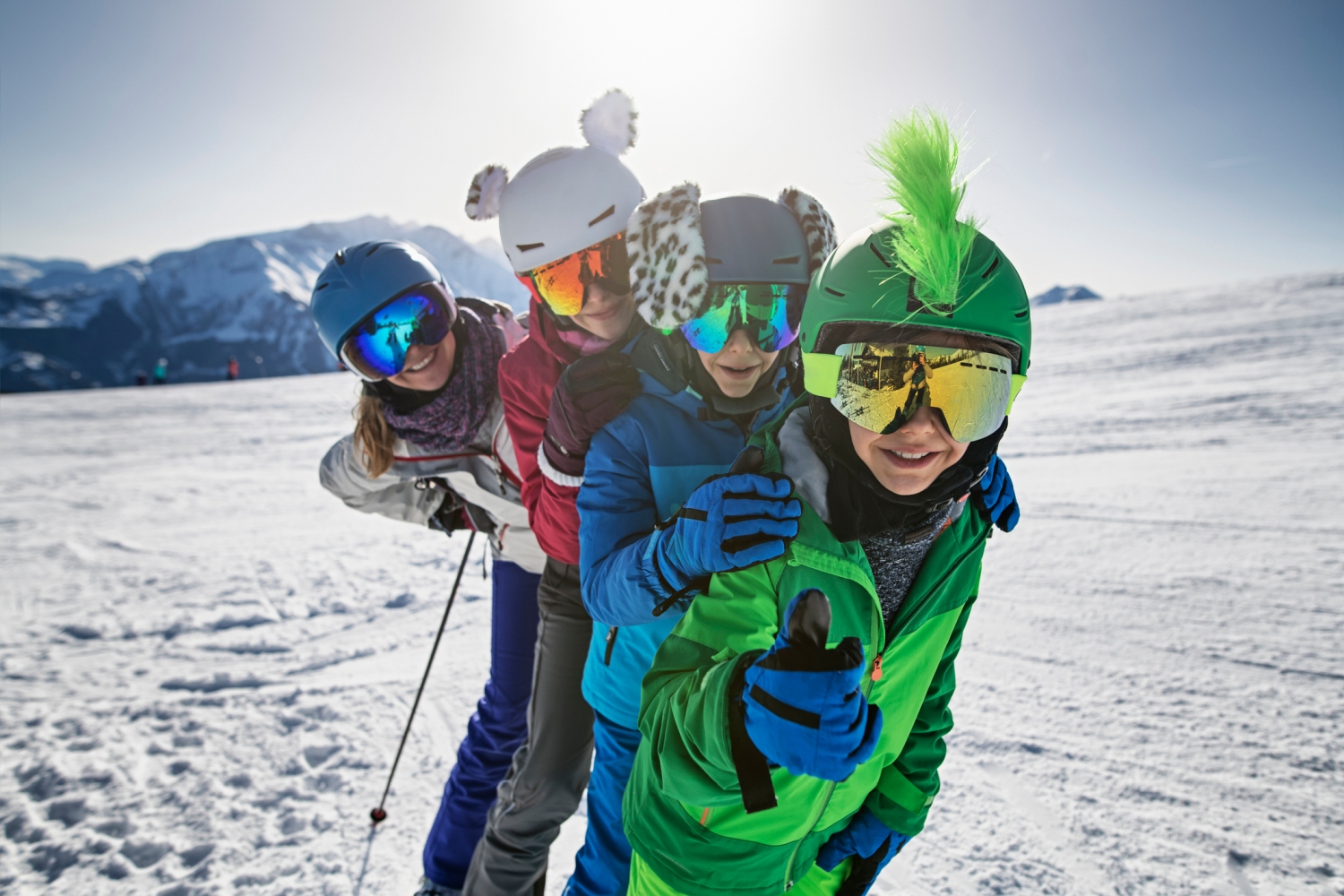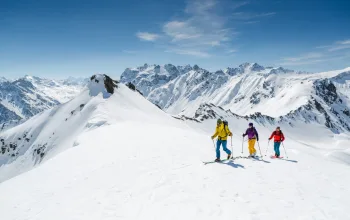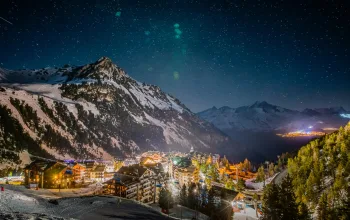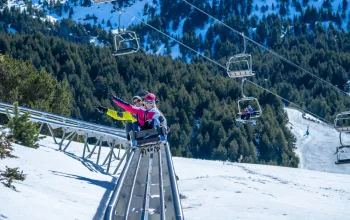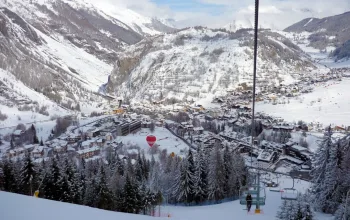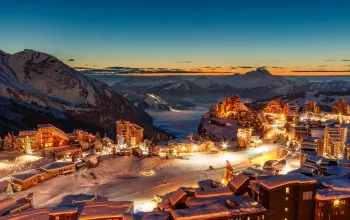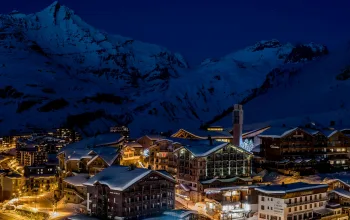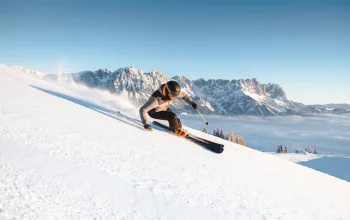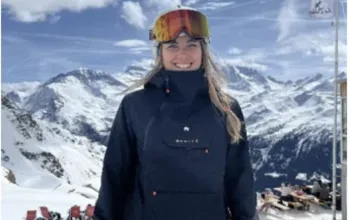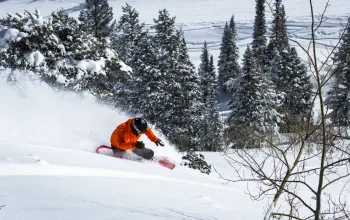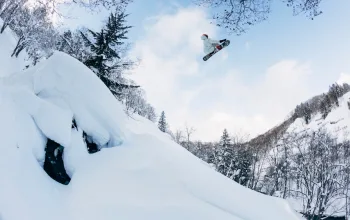Last February, my 13-year-old son and 79 of his schoolmates stepped off a coach in Zell Am See. They had neck pillows, bed hair, and bleary eyes from 24 hours of mainlining Netflix through a phone screen. Yet, he says, despite the sleep deprivation, the excitement at seeing the snowy mountains was palpable. He’s at a state school in Brighton and Hove, and three quarters of the kids on the trip had never skied before, let alone been to the Alps.
This is hardly surprising. A recent survey by the Ski Club of Great Britain and the Mountain Trade Network showed that 50 percent of regular skiers earn over £50,000 a year—well over the national average salary. My son’s trip wasn’t cheap. It cost £1,500, paid in instalments over a year, but that included everything: from six full days of ski school, kit hire and lift pass, to food, and fun evening activities at the hotel. If you’ve ever tried to price up a family trip during the February half term, especially since Covid, you’ll know that represents very good value for money.
Still, that price would have put it out of reach for many families at the school. There is a legitimate debate to be had over whether it’s fair for state schools to offer such holidays to kids who can afford it, not least during a cost of living crisis. But the alternative is that these trips exist purely for private school kids, who can also travel outside of the main school holidays, when it’s cheaper. That hardly seems fair either.
At my son’s school, King’s, the trip to Austria was organised by Robert Cornell, the much-loved head of PE. It clearly involved a lot of work, which no doubt put some already-stretched teaching staff off. But even though his family couldn’t afford to send him on his school ski trip when he was younger, Mr Cornell felt passionately that kids should have the opportunity to try it.
Aside from the exhilarating experience of the skiing itself, and the chance to soak up alpine culture, he believes the trip provides children with an amazing opportunity to develop their independence and confidence while being away from home. Be that through navigating a new language and cuisine or taking responsibility for getting their clothing and equipment ready. (Special shout-oout to my friend’s son who came back from a ski trip with six pairs of neatly-folded, unworn pants). Kids strengthen bonds with their good pals, forge new friendships across the year groups, and develop closer relationships with their teachers.
When students leave in year 11, Cornell says those who’ve been on ski trips always refer to it as the highlight of their school days. My son had such a great time, I fully expect he’ll feel the same. As parents, having watched this cohort go through Covid and miss out on many of their formative primary school experiences, we felt super-grateful he had this opportunity.
Beyond the benefits to individual children and their schools, there’s also a huge upside for the snowsports industry when as many kids as possible get to go on school ski trips. In 2023, the Telegraph reported that school ski trips had shrunk by 75 percent since the 1980s, when half a million children travelled to the Alps each winter.
That’s 375,000 kids who aren’t falling in love with ski resorts and mountain culture each year. Kids who might have considered doing a ski season later in life (Brexit red tape notwithstanding), and gone on to become regular skiers as adults. It’s also 375,000 kids who might have become more environmentally engaged, having witnessed the effects of global heating first hand. As activists from Protect Our Winters are fond of pointing out, passionate skiers often make excellent climate advocates.
Most of all though, that’s 375,000 kids who are missing out on the benefits of just being kids. Kids who would have spent a week away from their screens, laughing with their friends on chairlifts, and being active in some of the most stunningly beautiful landscapes on the planet. Ordinary state school kids deserve to experience all of this, and more. It shouldn’t just be for the privileged few.
Sam Haddad is a freelance writer, specialising in snowsports & the environment. She edits the newsletter climateandboardsports.substack.com
